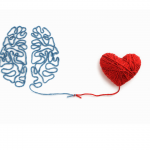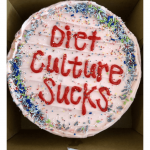Veganism and Eating Disorder Recovery
Practicing vegans can have eating disorders, but veganism itself isn’t one.
Food is nourishing in so many ways because food choice is not just about nutrition. And if it’s true what we say, that eating nourishes the soul and can be a spiritual act, then we as an eating disorder treatment community must rethink how ethical vegans are treated during eating disorder recovery.
You might also be interested in:
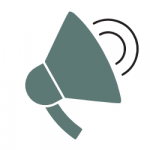
On May 19, 9 AM / PT, please join Tammy Beasley, RDN, CEDRD-s, CSSD, LD for a FREE CE Webinar:
Veganism and Eating Disorders: What Our Clients Are Teaching Us
Veganism is on the Rise
While a relatively small minority of people in the United States identify as vegan, the number has been growing- as has the number of vegan food options. Have you noticed?
It also looks trendy! Celebrities and social media influencers tout the health benefits of their “clean” diet and fill up their social media feeds with colorful images of produce and raw juices, promoting borderline orthorexia in a Sunday hat.
Animal rights activists are not a new group. Their social media channels tend to share graphic videos of animal abuse in an attempt to appeal to their followers’ emotions.
People become vegan for all kinds of reasons and it’s wild to think that, just a few short years ago, veganism was a concept that still needed to be explained at family gatherings and most restaurants. Now, at least in more metropolitan areas, restaurant servers are familiar with veganism and vegan food options. The menus themselves have multiple vegan options listed, making it even easier to try a plant-based diet on for size.
And now there’s even more attention directed towards plant-based foods. In 2019, the UN’s Intergovernmental Panel on Climate Change (IPCC) concluded that while a vegan diet is not possible for everyone, eating less meat and dairy and adopting more of a plant-based diet would have a significant, desirable effect on climate change and rising tides. What I am trying to say is, veganism is not just a trend, it’s not something you can simply talk people out of if they are committed for ethical and environmental reasons, and it is not going away.

Vegan Eating Disorder Clients
Practicing vegans can have eating disorders, but veganism itself isn’t one. Veganism can, however, obviously be part of disordered eating in disguise
We know that some eating disorder clients misuse veganism as a means to control or as a cover for restricting food choices. But even clients for whom that is the case may still have worthy intentions behind their decision to practice veganism in the same way that someone may have worthy intentions behind riding their bicycle but sometimes struggle in their relationship with biking or exercise.
I do not want to doubt the sincerity of my vegan clients based on assumptions or suspicions. I believe it is my job and the job of my team to help each individual, regardless of their feeding preference, get honest about what’s behind those preferences and see if we can untangle the ethical vegan beliefs from the eating disorder.
In the best cases, instead of throwing veganism out with the bathwater, clients either walk away from veganism after learning it no longer serves them, or they leave treatment with all the tools they need to practice veganism safely, honestly, and with permission to “break the rules” in order to feed themselves when vegan options are not available.
Eating Disorders do not discriminate, so why would we?
We can’t tell clients that their relationship with food is unique, valid, and about nourishing the whole person AND make them throw away something as valued and important as veganism is for some people– simply because we, ourselves, do not understand or agree with it. Veganism can be an integral part of some peoples’ culture and we want to embrace this without discrimination. The good news is, there are so many resources available now to make that understanding possible!
Eating disorders carry lots of food beliefs, but having strong food beliefs does not always mean you have an eating disorder. It is when the food belief has robbed an individual of variety, spontaneity, relationships, flexibility, and daily nourishment to thrive that we need to talk.
At Alsana, we believe it is our responsibility to learn about the difference between veganism and restriction, or veganism and orthorexia, so we can be an advocate for our vegan clients to help them discover this too.
Even if it doesn’t last, the experience of being vegan can be valuable
When working with vegan clients, you will probably encounter different kinds of challenges than with other clients, of course. On the other hand, why not look for the rich opportunities to grow as well?
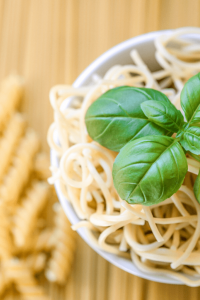
Vegan dishes are part of many world cultures, and are by no means “diet” foods; vegan foods are often high in carbohydrates and healthy fats.
While vegan dishes are only now becoming somewhat popular in parts of the United States, many other cultures have always embraced vegan or vegetarian dishes. As we work to heal the relationship between the person and their food, don’t leave any stone unturned! Use food to learn about a new culture or the region where the ingredients come from. Make a dish you can’t even pronounce. Practice kitchen competency and get your hands dirty. Show your vegan clients that food should be a celebration of sustenance- not something that feels limiting or shame-based.
And perhaps one day, for any number of health, financial, or other reasons, that person might walk away from veganism. This decision does not mean that they were intentionally deceiving themselves the whole time. Choosing to walk away is as empowering as having the choice to practice veganism in the first place and I’d rather empower someone to make that choice on their own when and if they are ready than make them set veganism aside during treatment only to then pick it up again after treatment without any of the tools they need to navigate it safely.
We want to do better for vegan clients
Our vegan clients tell us that sometimes people tease them with questions like, “Would you ever eat this? What about that? Or that?” Our clients share about the pressure that these statements can add to the pressure they already feel for reasons that have little to do with veganism. As eating disorder treatment professionals, we want to provide a safe space in which food pressures, fears and anxieties can be recognized, explored and resolved.
When I work with vegans, one of the biggest things I try to convey is that being vegan for ethical or compassionate reasons is beautiful, AND it is important to extend that same compassion to oneself. People with eating disorders often have rigid food rules and an underlying fear of messing up/doing the wrong thing. They need to learn how to allow both of these things to be true:
Harming animals is against my ethics and I have the right not to violate those ethics,
AND
Harming myself is against my ethics and I have a right to nourish myself, even when my ideal food choices are not available. When I am nourished, I have the energy I need to be my best self in the world and in my relationships.
All in this together
Food connects us to our culture, to deep wells of memories, and to all five of our basic senses. It also connects us to our planet. More and more people, including our clients, are seeing how intertwined food choices and climate change are. More and more people are trying to extend their personal values and ethics to their relationship with food. We can help them learn to do this without assigning a moral judgment to food itself.
We want to walk alongside our vegan clients and be part of the process that ultimately helps them discover the truth behind their food beliefs- not make assumptions about their health or their relationship with food on the basis of veganism alone. Vegan food beliefs and eating disorder beliefs can intertwine, but they can also simply exist side by side. We believe that full recovery is possible for all of our clients, and this means vegan clients too.
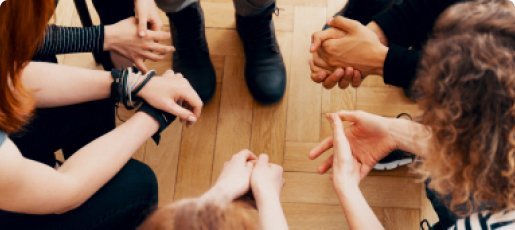
We Are Here to Help
Speak to a masters-level assessment specialist for guidance & support Monday–Friday from 6 am–6 pm (PST).

Virtual Treatment Options
Meeting each client where they are on their recovery journey. Virtually.
Our Recommended Articles
Start the road to recovery with Alsana.







